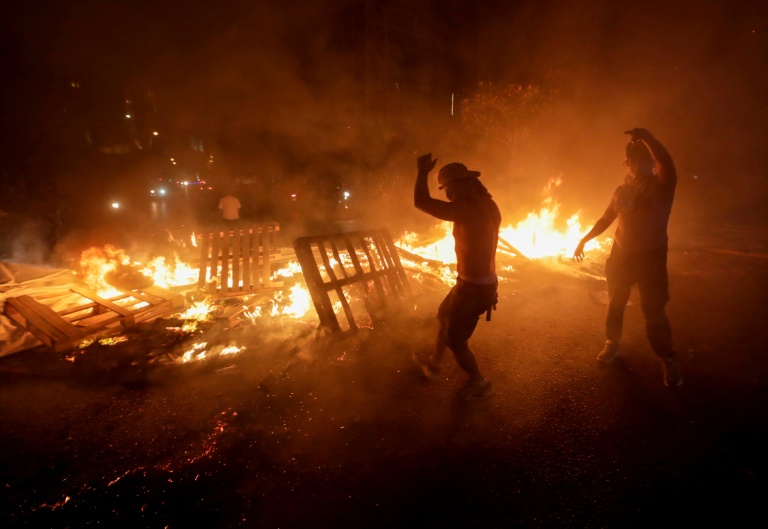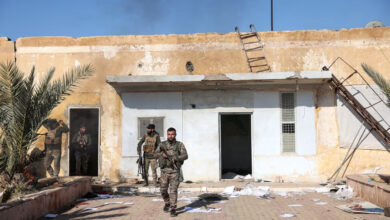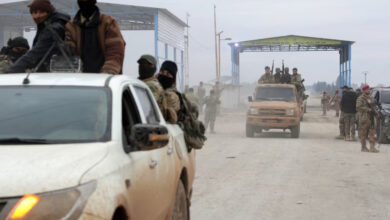
The Lebanese government faced calls to resign Thursday after thousands of furious demonstrators took to the streets across the country to protest dire economic conditions.
Public anger has simmered since parliament passed an austerity budget in July to help trim a ballooning deficit and flared on Thursday over plans to tax calls on messaging applications, forcing the government to axe the unpopular measure.
Across the country, demonstrators chanted the popular refrain of the 2011 Arab Spring protests: “The people demand the fall of the regime.”
Protesters in the capital blocked the road to the airport with burning tires, prompting a heavy deployment by security forces.
Near government headquarters in central Beirut, violent confrontations broke out between protesters and security forces as demonstrators tried to storm the building.
Security forces fired tear gas to disperse protesters, after the Internal Security Forces (ISF) said clashes wounded 40 of its members.
Protesters also sparked a large blaze near the Mohammad al-Amin mosque in Downtown Beirut.
“We elected them and we will remove them from power,” one protester told a local TV station.
“What unites us is the standard of living — we are all destroyed,” said another.
Besides the capital Beirut, protests erupted in the southern city of Sidon, the northern city of Tripoli and the Bekaa Valley, before spreading to other areas, the state-run National News Agency reported.
Telecommunications Minister Mohammad Choucair said that the government had reversed its decision to tax calls on messaging apps following the unrest.
The government is weighing a series of further belt-tightening measures it hopes will rescue the ailing economy and secure $11 billion in aid pledged by international donors last year.
It is expected to announce a series of tax hikes in the coming months as part of next year’s budget.
Thursday’s far-reaching protests prompted calls by senior officials for the government to resign, with influential Druze politician Walid Jumblatt saying he had urged the prime minister to step down.
Interior Minister Raya al-Hassan said the prime minister will deliver a speech on Friday.
“If this government falls, the government that will come after will not have better options,” she said in a statement carried by NNA.
The education ministry said schools and universities would be closed on Friday.
Whatsapp revolution
Earlier on Thursday, Information Minister Jamal Jarrah had announced a 20-cent daily fee for messaging app users who made calls on platforms such as WhatsApp and Viber, sparking public outrage.
He told reporters after a cabinet session the move would bring $200 million annually into government coffers.
Lebanese digital rights group SMEX said the country’s main mobile operators were already planning to introduce new technology that will allow them to detect whether users are trying to make internet calls using their networks.
“Lebanon already has some of the highest mobile prices in the region,” SMEX said on Twitter.
The latest policy “will force users to pay for internet services twice,” it added.
Growth in Lebanon has plummeted in the wake of repeated political deadlocks in recent years, compounded by the impact of eight years of war in neighboring Syria.
“Most high-frequency indicators point towards a continuation of weak growth in 2019,” the International Monetary Fund said Thursday.
Lebanon’s public debt stands at around $86 billion — higher than 150 percent of gross domestic product — according to the finance ministry.
Eighty percent of that figure is owed to Lebanon’s central bank and local banks.
Last month, banks and money exchange houses rationed dollar sales, sparking fears of a currency devaluation.




